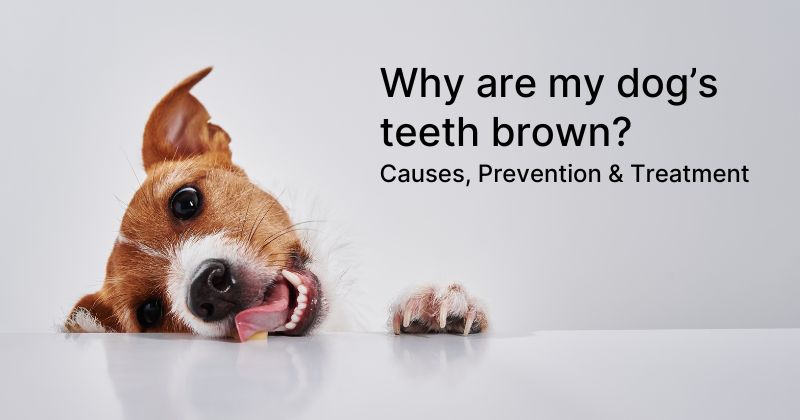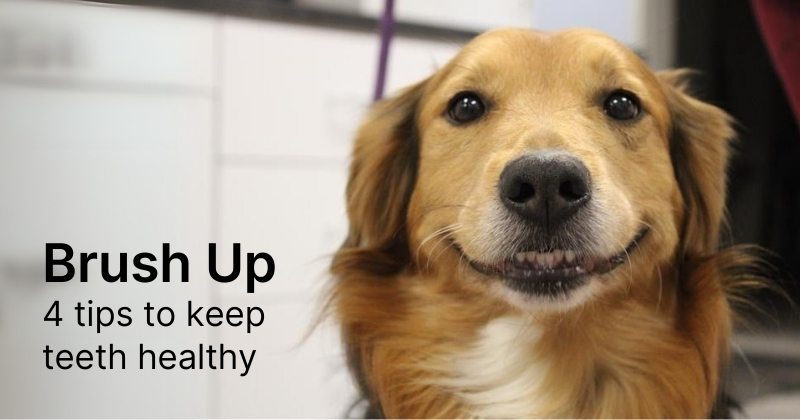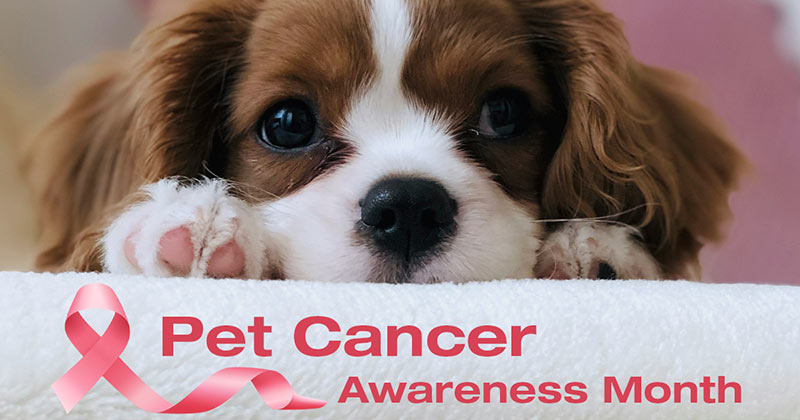
When you notice that your dog's teeth are turning brown, it’s natural to be concerned. Dental health plays a vital role in your pet’s overall well-being, and changes in the color of their teeth can be a sign of an underlying issue. In this blog, we’ll discover the potential causes of brown teeth, the impact on your dog’s health, and what steps you should take next. For personalized advice or to schedule a dental check-up for your dog, call Skyline Veterinary Clinic at (402) 933-6800 or request an appointment.
While some causes are easily managed with proper dental care, others might require veterinary attention. Here are the most common reasons for brown discoloration in a dog’s teeth:
Not all brown teeth are created equal. While tartar build-up may be managed with dental cleanings, other causes of tooth discoloration could indicate more serious issues. It's important to monitor your dog's teeth for signs of other symptoms that may require veterinary attention.
As tartar builds up on your dog’s teeth, it can push against the gums, causing inflammation and infection. This condition, known as periodontal disease, can lead to painful tooth loss, abscesses, and even damage to internal organs if bacteria enter the bloodstream. If your dog’s gums appear red, swollen, or bleed easily, they may be suffering from gum disease. Dental care is critical at this stage to prevent further damage. Call Skyline Veterinary Clinic at (402) 933-6800 to schedule an evaluation if you notice any signs of gum disease.
Brown teeth can also be a sign of tooth decay, which occurs when bacteria break down the enamel and dentin layers of the tooth. Decayed teeth may appear brown, black, or gray and can be painful for your dog. Decay often requires professional intervention, such as fillings or extractions, to prevent further damage. Keep an eye on your dog's eating habits—if they are avoiding hard food or seem to be chewing on one side of their mouth, it could indicate tooth pain. A dental exam will help identify any decaying teeth and determine the best course of action.
If your dog’s brown teeth are accompanied by bad breath, this could be another indicator of dental disease or infection. Bacteria that cause tartar build-up can also produce a foul odor. Persistent bad breath should not be ignored, as it may point to advanced dental issues that need attention.
Fortunately, there are many steps you can take to prevent your dog's teeth from turning brown. Establishing a routine dental care plan can go a long way in maintaining their oral health. Here are a few tips to keep your dog's teeth clean and healthy:
Brown teeth can be a sign of underlying issues that require attention, from tartar build-up to more serious dental problems like gum disease or tooth decay. By recognizing the causes of brown teeth and taking proactive steps, you can help your dog enjoy a healthier, happier life. For expert advice and professional dental care, contact Skyline Veterinary Clinic at (402) 933-6800 or request an appointment today. Our team is here to support your dog's oral health every step of the way.


